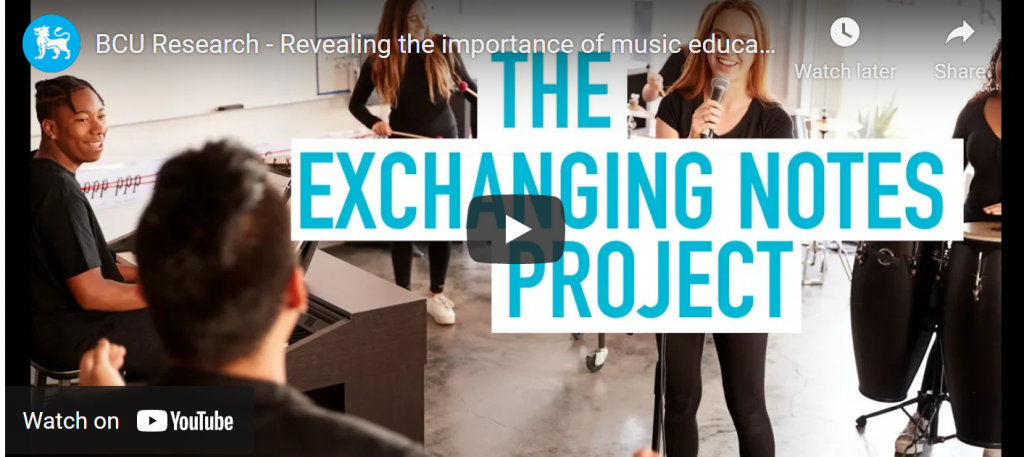The project set out to explore what would happen if young people at risk of disengagement, low attainment or exclusion from school had access to a creative and inspiring music curriculum that was sustained over four years.
Commissioned by national music charity Youth Music, the four-year research project titled ‘Exchanging Notes’ found that young people at risk of exclusion at the outset of the programme maintained high levels of attendance (>95 per cent) throughout the project.
The project started by looking at young people’s music interests and brought music genres such as grime and hip-hop into the classroom with the help of music industry professionals and local music-making projects.
The research revealed the positive impact of music education on young people at risk of educational exclusion. It found that young people at risk of exclusion at the outset of the programme maintained high levels of attendance (>95 per cent) throughout. This demonstrates that music in schools has the potential to re-engage young people in education, develop their confidence, resilience and self-belief, and create a more positive attitude to learning
There was also an increase in participants performing above expectation in maths and English over the course of the programme, from 14 per cent to 21 per cent and 15 per cent to 28 per cent of participating pupils respectively. While it is not possible to attribute direct causality between participation in Exchanging Notes and improved literacy or numeracy attainment, what we can say with certainty is that it helped to open the door for learning with music used as a ‘hook’.
The report’s authors produced 14 recommendations for 21st Century music education. This included highlighting the importance of music education for young people at risk of educational exclusion, and the need for partnership working between schools and out-of-school music education providers.
The research was cited in a House of Commons during a debate on the future of music education on 17 July 2019.




